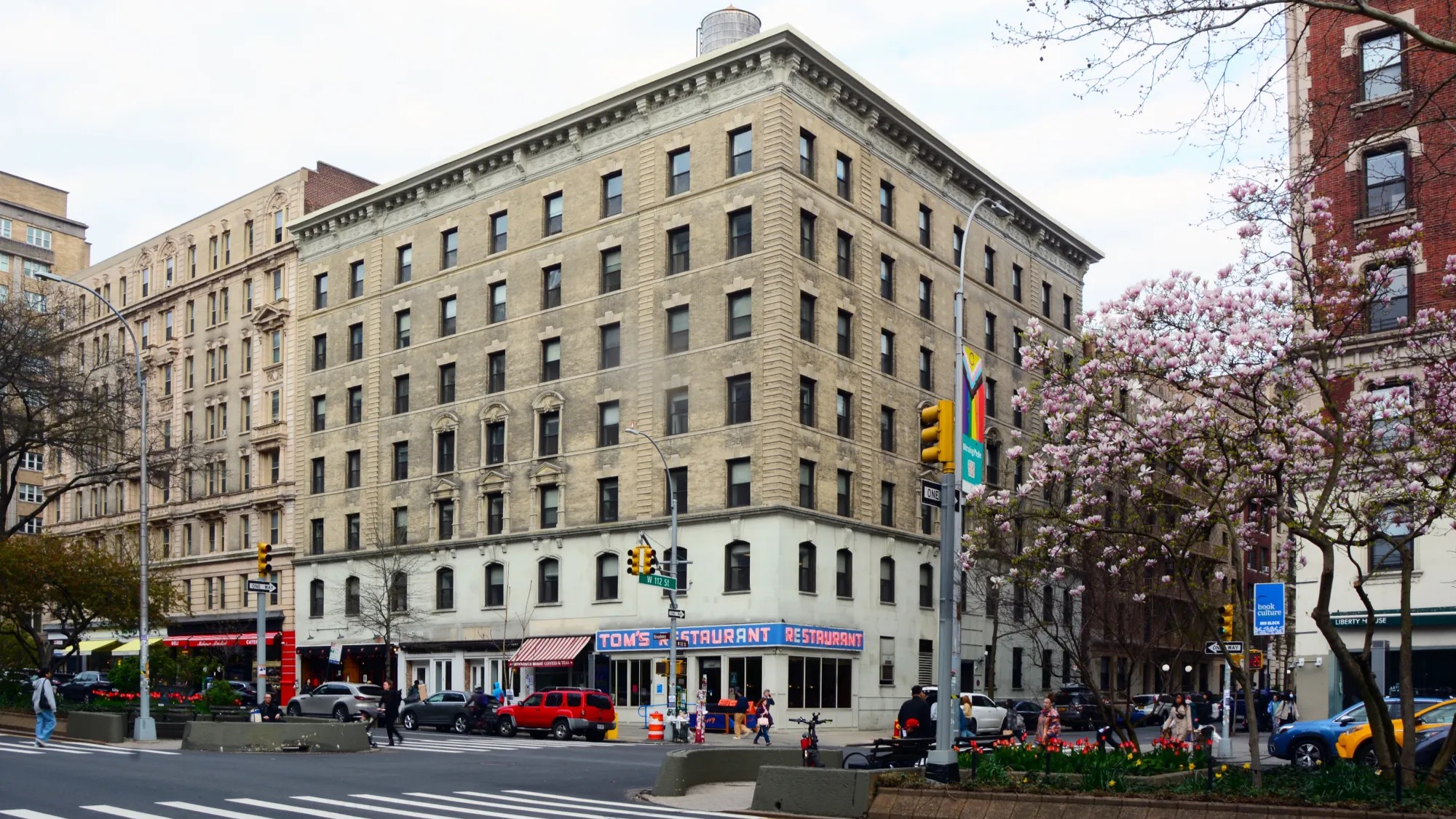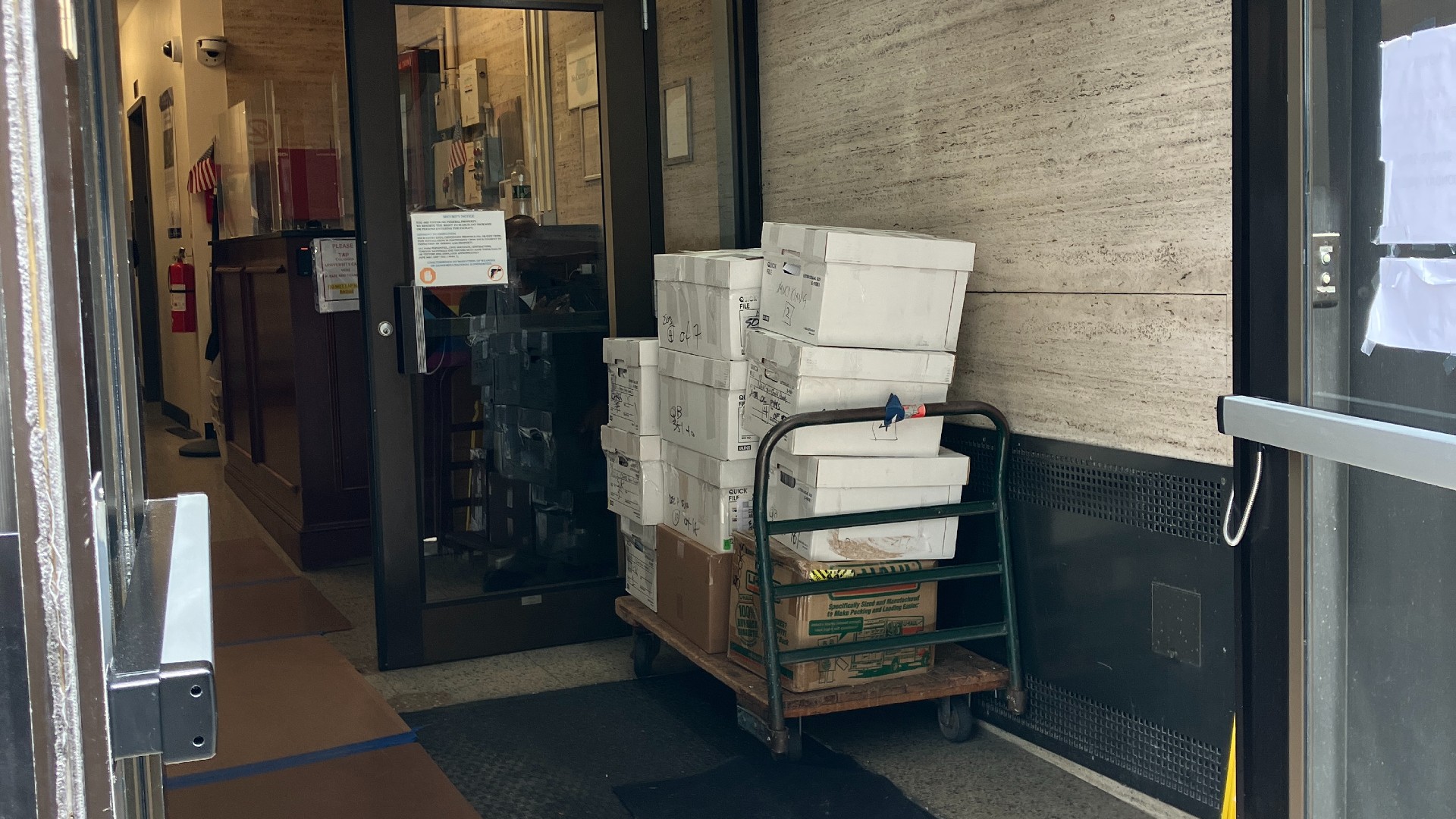'This is an attack on NASA.' Space agency's largest union speaks out as DOGE cuts shutter science institute located above 'Seinfeld' diner in NYC
The Trump administration is closing a historic NASA science office in the name of efficiency, but critics point out that the move won't actually save much money.

NEW YORK — NASA's Goddard Institute for Space Studies has stood on a Manhattan corner near Columbia University's campus since 1966.
The institute, called GISS for short, shares the building with Tom's Restaurant, a diner made famous by its regular appearance on the hit sitcom "Seinfeld." As George and Jerry discussed their dating lives over coffee, scientists two floors up were busy developing probes for NASA's Voyager program and analyzing the composition of Earth's atmosphere.
But thanks to the Trump administration's Department of Government Efficiency, led by SpaceX CEO Elon Musk, all that is coming to an end. In April, GISS employees received word that their office was being shuttered as part of the administration's latest round of federal funding cuts. They had until May 31 to move out completely from the institute's offices at the corner of Broadway and West 112th Street.
"This is an attack on NASA," Matt Biggs, president of the International Federation of Professional and Technical Engineers (IFPTE) — NASA's largest union — told Space.com Tuesday (May 27) during a news conference outside the GISS offices. IFPTE represents 8,000 NASA scientists and engineers, including a number at GISS.
The air at the press conference was somber. We stood on the sidewalk outside Armstrong Hall, the Columbia building that houses GISS. As reporters approached, a few lingering GISS employees scattered. We were later told that they had been instructed not to speak with the press under threat of losing their jobs.
"As part of the administration's government-wide review of leases to increase efficiency, NASA is canceling its lease of Columbia University's Armstrong Hall in New York City, home to the Goddard Institute for Space Studies," a NASA spokesperson said in a statement emailed to Space.com. "Over the next several months, employees will be placed on temporary remote work agreements while NASA seeks and evaluates options for a new space for the GISS team."

But critics point out that closing the office won't actually save the agency much money. NASA already signed a $3 million per year lease on the building through 2031, and they can't sublet the space to outside parties. Those dollars ultimately come from taxpayers. "It makes no fiscal sense whatsoever," said Biggs.
Get the Space.com Newsletter
Breaking space news, the latest updates on rocket launches, skywatching events and more!
In addition to the financial waste, the shuttering makes little sense from a research perspective. GISS has a stellar scientific pedigree going back decades. In 1966, it hosted the meeting that birthed the theory of plate tectonics. GISS personnel worked on instruments for NASA's historic Mariner 5, Pioneer 10 and 11, and Voyager missions. (Voyagers 1 and 2, launched in 1977, are now exploring interstellar space.)
The facility also houses climate change records dating back to the 1880s, and its scientists were involved in modeling potential flooding in New York City that became invaluable during Hurricane Sandy in 2012.
While Biggs spoke, movers began wheeling stacks of boxes bearing labels like "LONG TERM STORAGE/GISS LIBRARY" past us. Some were bound for storage on Columbia's campus, while others will likely be shipped to NASA's Goddard Space Flight Center in Maryland. But it is unclear whether all of the files — both physical and digital — at GISS will end up in these locations.
Photos obtained by Space.com show the inside of the building gutted. Conference rooms stand empty. A handful of neon sticky notes, left by employees, speckle a NASA logo. Written on them is the oath that the researchers took upon becoming civil servants, according to one IFPTE member who asked not to be named.
Biggs sees the closure as part of an ongoing attack by the Trump administration on both science and higher ed. Columbia in particular has been singled out by the administration, which withdrew $400 million in federal grants from the institution in March. But Biggs and IFPTE have no intention of throwing in the towel. Their next move is to petition congressional lawmakers to explicitly write GISS's funds into an appropriations bill.
"What we're trying to do is get Congress to do their job and protect this place," Biggs said.
Join our Space Forums to keep talking space on the latest missions, night sky and more! And if you have a news tip, correction or comment, let us know at: community@space.com.

Joanna Thompson is a science journalist and runner based in New York. She holds a B.S. in Zoology and a B.A. in Creative Writing from North Carolina State University, as well as a Master's in Science Journalism from NYU's Science, Health and Environmental Reporting Program. Find more of her work in Scientific American, The Daily Beast, Atlas Obscura or Audubon Magazine.
You must confirm your public display name before commenting
Please logout and then login again, you will then be prompted to enter your display name.
